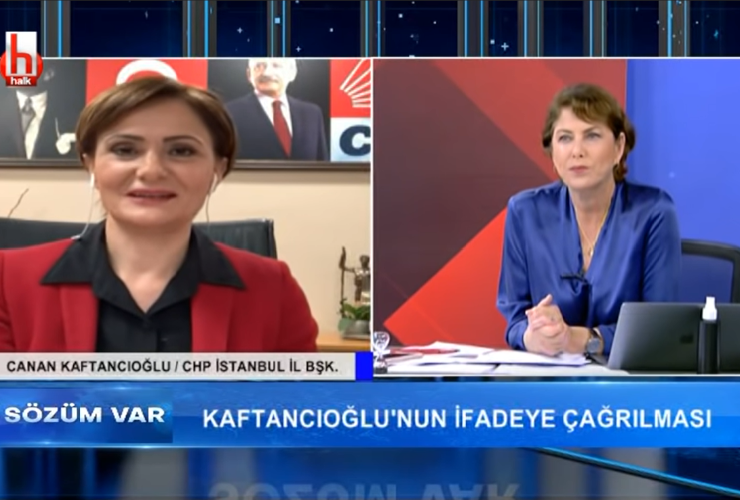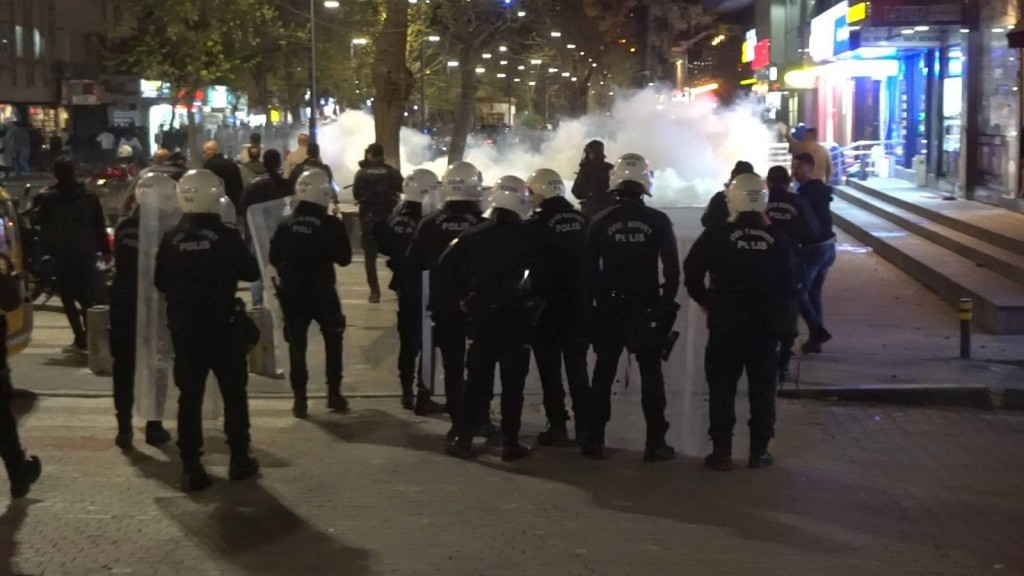The International Press Institute (IPI) today condemned the temporary broadcast ban on Halk TV imposed by the Turkish Radio and Television High Council (RTÜK) over the station’s critical coverage and called for an end to the harassment of media in Turkey.
On Thursday, Halk TV, a prominent channel independent of the Turkish government’s control, was banned from broadcasting a primetime programme for five times after it hosted Canan Kaftancıoğlu, the İstanbul chair of the main opposition party CHP, in the programme.
During a live discussion on Halk TV aired on April 29, Kaftancıoğlu responded to anchors’ questions on the government’s policies and the rumors about an early election. “[…] I can see that a change in the government, even a change in the system by an early election or in some other way is on the way”, Kaftancıoğlu said. RTÜK interpreted this speech, especially the words “change in some other way”, as a threat of a coup attempt and issued five limited broadcast bans for “inciting public to hatred and enmity”. RTÜK additionally issued a monetary fine for 5 percent of the channel’s advertisement revenue from the previous month.
IPI Executive Board member and Turkey National Committee Chair Kadri Gürsel stated that such commentary cannot be criminalized.
“If the name of the political regime in Turkey is democracy, expressing opinion on the need of government’s change or that it will change does not constitute a crime”, he said. “Associating Kaftancıoğlu’s words in Halk TV with an intent to a coup and banning the programme from broadcast upon these comments clearly shows there is no tolerance left for what remains of the free press in Turkey.”
“This is a sign of weakness actually,” Gürsel said.
Halk TV was recently targeted with other broadcast bans by RTÜK regarding another programme titled “Medya Mahallesi” (Media Town) in which is aired a speech by MP Ahmet Şık from the pro-Kurdish HDP party. RTÜK similarly issued a five-time broadcast ban and a 5 percent monetary fine.
According to broadcasting regulations, RTÜK is entitled to cancel the programme in dispute or the broadcasting license of a TV channel completely if the violation is repeated a third time for the same clause violation within a year after the first ban issued. This previous ban on Halk TV was reported to be under a different clause violation.
IPI Head of Europe Advocacy and Programmes Oliver Money-Kyrle urged the authorities to stop harassment on Halk TV and said: “This is yet another clear attempt to silence and intimidate the free press in the country. RTÜK has been acting as a government tool for a long time to silence and intimidate the media. A second ban on Halk TV in two weeks is a clear sign of a politically motivated attempt to target channel’s free coverage and even its license.”
RTÜK has been issuing consecutive broadcast bans and fines mostly to critical or opposition media outlets such as Fox TV, TELE1 and even to the pro-government broadcaster Habertürk after it included opposition party leader Meral Akşener of the Good Party (Iyi Party) in the primetime “Teke Tek” (One to one) programme. RTÜK’s fines against TV channels have accelerated with the new powers granted to it in August 2019. The Council is predominantly formed by six members of the ruling AKP-MHP coalition, as opposed to three members from the opposition parties CHP and HDP.



